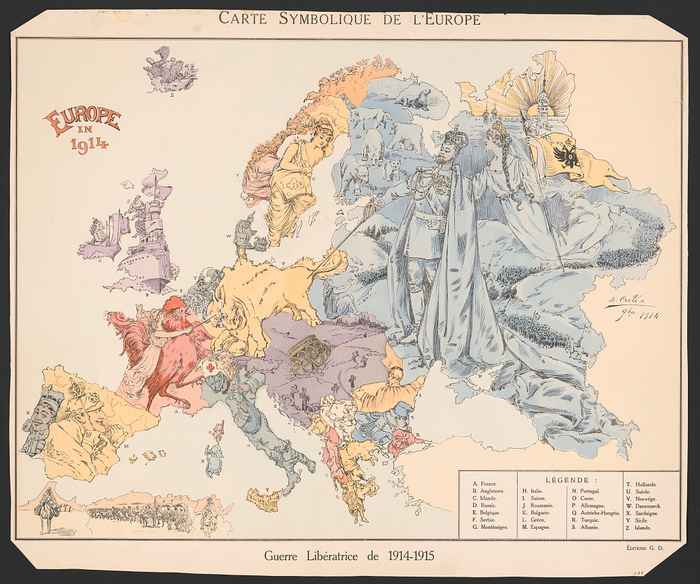Ethnoschism
In all recent European crises, be they related to questions of the economy, immigration, or disease control, an ingrained North-South polarity exacerbates political tensions. Government policies, public information and opinion-making often activate stereotypes that are so rooted as to have become common currency everywhere; crisis situations invariably render these ‘banal’ ethnotypes politically ‘hot’. ETHNOSCHISM addresses this stereotypical repertoire both as a cultural construct and in its political agency, pioneering a combined approach of imagology, knowledge production, and nationalism studies.
The period under consideration extends from 1914 to 1929, which saw the entrenchment of these ethnotypes, fostered by the outbreak of the First World War and the rising of totalitarian regimes in many European states. The project’s source material includes published works from various fields, such as literature, entertainment, cultural criticism, political commentary and war propaganda by public intellectuals and state figures.
Project leader: Dr Francesca Zantedeschi
The project is funded by the European Commission (HORIZON-MSCA-2021-PF-01).
